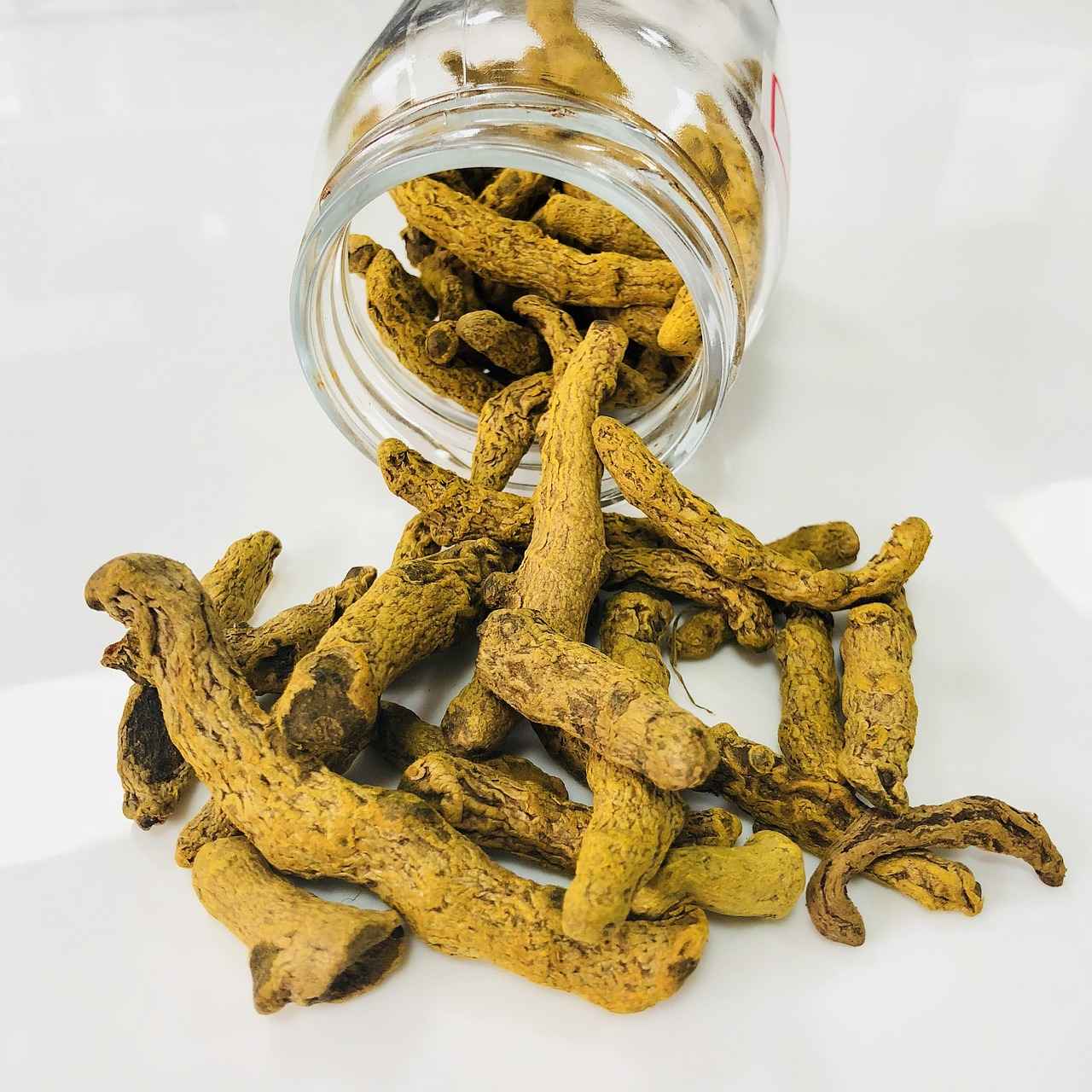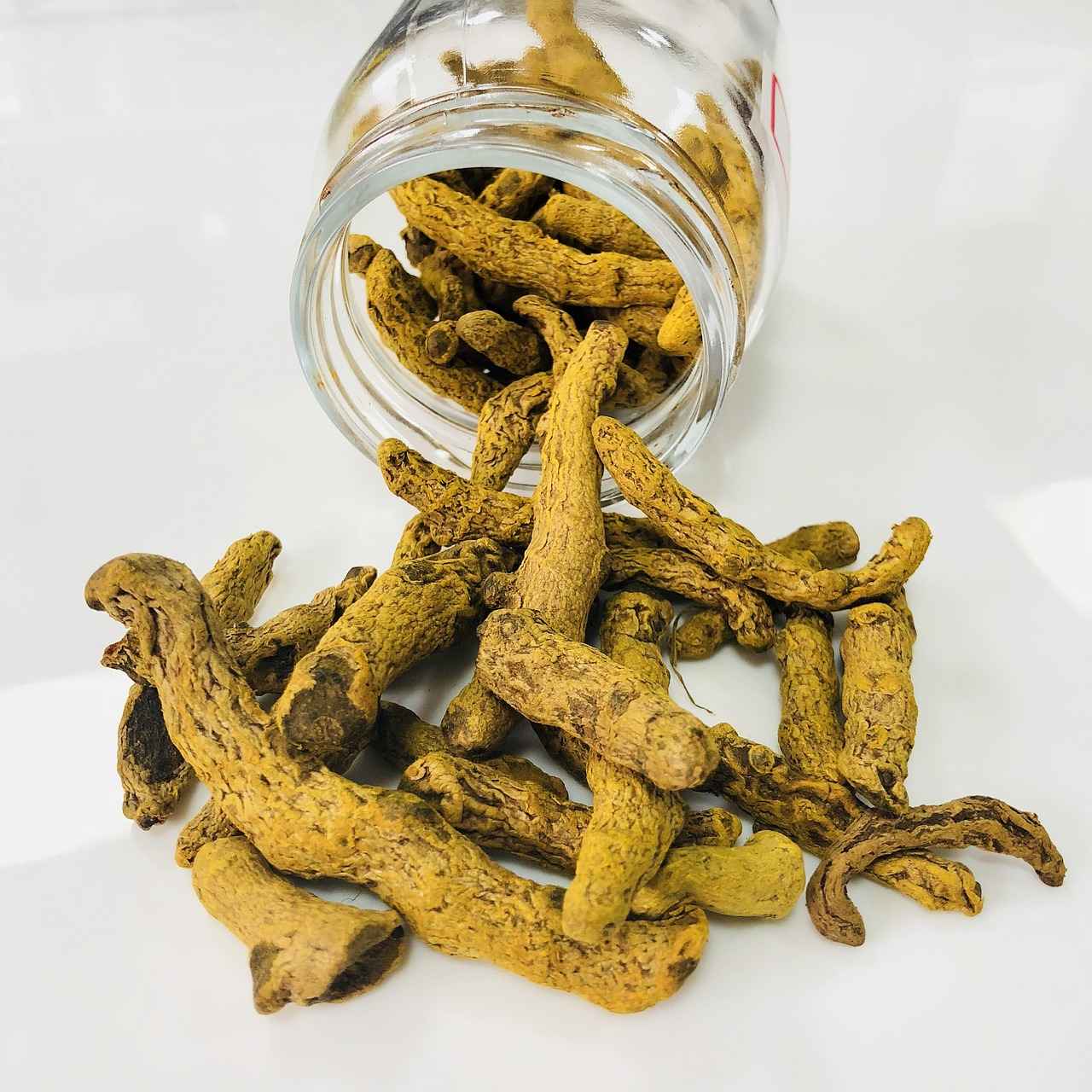This article delves into the benefits of curcumin complex in fostering a healthy inflammatory response. By examining its properties, various uses, and the scientific evidence backing its effectiveness, readers will gain a deeper understanding of its crucial role in promoting overall wellness.
What is Curcumin Complex?
Curcumin complex is a natural compound extracted from turmeric, a spice renowned for its potent anti-inflammatory properties. Understanding its chemical composition and biological functions is vital for appreciating the extensive health benefits it offers.
Health Benefits of Curcumin
- Reduces Inflammation: Curcumin is celebrated for its ability to reduce inflammation, which is often the root cause of various chronic diseases.
- Supports Joint Health: Many individuals with joint issues, such as arthritis, have found relief through curcumin supplementation.
Anti-Inflammatory Properties
The primary advantage of curcumin lies in its robust anti-inflammatory properties. It interacts with multiple inflammatory pathways in the body, effectively mitigating chronic inflammation.
Mechanism of Action
Curcumin functions by inhibiting pro-inflammatory cytokines and enzymes, which are pivotal in the inflammatory response. This mechanism underscores its potential effectiveness in treating various inflammatory conditions.
Clinical Studies Supporting Efficacy
Numerous clinical studies have validated curcumin’s effectiveness in alleviating inflammation. These findings bolster its reputation as a beneficial health supplement.
How to Incorporate Curcumin into Your Diet
- Culinary Uses: Curcumin can be seamlessly integrated into dishes such as curries, smoothies, and soups.
- Supplement Options: For those who prefer a more concentrated form, curcumin is available in capsules and powders.
Safety and Side Effects of Curcumin
While generally considered safe, some individuals may experience side effects. It’s essential to be aware of potential interactions with medications and consult healthcare professionals before starting any new supplement.
Conclusion: The Role of Curcumin in Health
In summary, curcumin complex plays a pivotal role in supporting a healthy inflammatory response. By recognizing its benefits and understanding safe consumption practices, individuals can enhance their overall health and wellness.

What is Curcumin Complex?
Curcumin complex is a powerful natural compound derived from turmeric, a spice that has been used for centuries in traditional medicine. This complex is renowned for its remarkable anti-inflammatory properties, making it a popular choice for those seeking to enhance their health and wellness. Understanding the composition and function of curcumin complex is essential for appreciating its myriad health benefits.
At the core of curcumin complex is curcumin, the active ingredient in turmeric. Curcumin is a polyphenol that not only contributes to the vibrant yellow color of turmeric but also plays a crucial role in its health-promoting effects. Its ability to modulate various biochemical pathways in the body is what makes it a powerful ally in combating inflammation.
Curcumin complex works by targeting multiple inflammatory pathways. It has been shown to inhibit the activity of pro-inflammatory cytokines and enzymes, thereby reducing the overall inflammatory response in the body. This mechanism of action is particularly beneficial for individuals suffering from chronic inflammatory conditions, such as arthritis, where inflammation can lead to pain and mobility issues.
Moreover, numerous clinical studies have supported the efficacy of curcumin in managing inflammation. Research indicates that regular supplementation with curcumin can lead to significant improvements in inflammatory markers, further validating its role in promoting a healthy inflammatory response.
In summary, the curcumin complex is not just a supplement; it’s a holistic approach to health that leverages the natural power of turmeric. By understanding its composition and mechanisms, individuals can better appreciate how curcumin can enhance their overall well-being and support a healthier inflammatory response.

Health Benefits of Curcumin
Curcumin, the active compound found in turmeric, has gained widespread recognition for its remarkable health benefits. This powerful antioxidant not only enhances flavor in culinary dishes but also plays a pivotal role in promoting overall well-being. Below, we delve into the extensive health benefits of curcumin, particularly its anti-inflammatory properties and its positive impact on joint health.
| Health Benefit | Description |
|---|---|
| Reduces Inflammation | Curcumin is known for its ability to combat chronic inflammation, which is linked to various health issues, including heart disease and cancer. |
| Supports Joint Health | It is particularly effective in alleviating symptoms of arthritis, providing relief from joint pain and enhancing mobility. |
| Boosts Immune System | Curcumin has immune-boosting properties that help the body fend off infections and diseases. |
| Improves Digestive Health | It aids in digestion and can help alleviate symptoms of bloating and gas. |
One of the most significant advantages of curcumin is its anti-inflammatory properties. Research indicates that curcumin interacts with multiple inflammatory pathways in the body, effectively reducing the production of pro-inflammatory cytokines. This mechanism is crucial for those suffering from chronic inflammatory conditions.
Furthermore, numerous clinical studies support the efficacy of curcumin in reducing inflammation and improving joint health. For instance, a study published in the Journal of Medicinal Food highlighted curcumin’s effectiveness in reducing pain and improving function in individuals with osteoarthritis.
In conclusion, incorporating curcumin into your diet can significantly enhance your health by reducing inflammation and supporting joint health. Whether through culinary use or supplements, the benefits of curcumin are extensive and well-documented, making it a valuable addition to any wellness regimen.
Anti-Inflammatory Properties
The of curcumin are widely recognized as one of its most significant benefits. This natural compound, derived from turmeric, plays a crucial role in managing inflammation within the body. Chronic inflammation is linked to numerous health conditions, including heart disease, diabetes, and cancer, making curcumin’s ability to mitigate this response particularly valuable.
Curcumin interacts with multiple inflammatory pathways, effectively inhibiting the production of pro-inflammatory cytokines and enzymes. By doing so, it helps to reduce the levels of inflammation in the body, promoting a more balanced immune response. Research shows that curcumin can influence the activity of various signaling molecules, such as nuclear factor kappa B (NF-kB), which is a key regulator of inflammation.
Moreover, curcumin’s bioavailability can be enhanced when combined with black pepper extract, which contains piperine. This combination not only boosts the absorption of curcumin but also amplifies its anti-inflammatory effects. Regular consumption of curcumin, whether through dietary sources or supplements, can lead to significant improvements in inflammatory markers.
Numerous studies have corroborated curcumin’s effectiveness in reducing inflammation. For instance, a study published in the Journal of Alternative and Complementary Medicine highlighted that participants who took curcumin supplements experienced a marked reduction in pain and inflammation associated with arthritis. Another study in the Journal of Clinical Immunology found that curcumin supplementation significantly decreased levels of inflammatory markers in patients with metabolic syndrome.
In summary, curcumin’s strong anti-inflammatory properties make it a powerful ally in the fight against chronic inflammation. By understanding how it interacts with the body’s inflammatory pathways, individuals can harness its benefits to support overall health and well-being.
Mechanism of Action
Curcumin, the active compound found in turmeric, has garnered significant attention for its ability to promote a healthy inflammatory response. The mechanism by which curcumin operates is multifaceted, primarily involving the inhibition of pro-inflammatory cytokines and enzymes that contribute to inflammation. By understanding this mechanism, we can appreciate why curcumin is considered effective in managing various inflammatory conditions.
At the cellular level, curcumin affects several signaling pathways that are crucial in the inflammatory process. It acts on key molecules such as nuclear factor kappa B (NF-kB), which plays a pivotal role in regulating the immune response to infection. By inhibiting NF-kB, curcumin effectively reduces the expression of inflammatory cytokines like interleukin-6 (IL-6) and tumor necrosis factor-alpha (TNF-α). This action helps to mitigate chronic inflammation, which is often at the root of many health issues, including arthritis, cardiovascular diseases, and metabolic syndrome.
Additionally, curcumin has been shown to inhibit enzymes such as cyclooxygenase (COX) and lipoxygenase (LOX), which are involved in the inflammatory pathway. By blocking these enzymes, curcumin helps to reduce the production of inflammatory mediators, further supporting a healthy inflammatory response. This dual action of targeting both cytokines and enzymes makes curcumin a potent natural anti-inflammatory agent.
Furthermore, research indicates that curcumin also possesses antioxidant properties, which play a complementary role in reducing inflammation. By neutralizing free radicals, curcumin helps to prevent oxidative stress that can exacerbate inflammatory conditions.
In conclusion, the mechanism of action of curcumin is vital for understanding its effectiveness in treating inflammatory conditions. By inhibiting pro-inflammatory cytokines and enzymes, and providing antioxidant support, curcumin emerges as a powerful ally in promoting overall health and well-being.
Clinical Studies Supporting Efficacy
Curcumin, a natural compound found in turmeric, has been the subject of extensive research due to its remarkable anti-inflammatory properties. Numerous clinical studies have consistently demonstrated its effectiveness in reducing inflammation, which is a critical factor in many chronic diseases. This section delves into key research findings that validate curcumin’s role in health supplements.
- Study on Joint Health: A randomized controlled trial published in the Journal of Medicinal Food found that participants with osteoarthritis who took curcumin supplements reported a significant reduction in joint pain and stiffness compared to the placebo group.
- Inflammation and Chronic Diseases: Research published in the American Journal of Clinical Nutrition highlighted that curcumin effectively reduced levels of inflammatory markers such as C-reactive protein (CRP) in individuals with chronic inflammatory conditions.
- Curcumin and Cardiovascular Health: A study in the Journal of Cardiovascular Pharmacology showed that curcumin supplementation improved endothelial function and reduced arterial stiffness, indicating its potential benefits for heart health.
- Impact on Inflammatory Bowel Disease: In a clinical trial published in Clinical Gastroenterology and Hepatology, curcumin was shown to alleviate symptoms in patients with ulcerative colitis, demonstrating its effectiveness in gastrointestinal inflammation.
These studies not only reinforce curcumin’s anti-inflammatory capabilities but also highlight its potential as a natural supplement for enhancing overall health. The growing body of evidence supports the incorporation of curcumin into dietary practices, aiming to improve health outcomes and mitigate inflammation-related issues.
As research continues to evolve, curcumin stands out as a promising supplement for those seeking to manage inflammation and improve their quality of life.
Curcumin in Joint Health
Curcumin, a natural compound derived from turmeric, has gained significant attention for its potential benefits in promoting joint health. Particularly for individuals suffering from arthritis, curcumin can be a valuable ally in managing pain and improving mobility. This section delves into the various ways curcumin can support joint health, backed by scientific research and practical insights.
Arthritis, characterized by inflammation and pain in the joints, affects millions of people worldwide. Traditional treatments often involve medications that can have adverse side effects. In contrast, curcumin offers a natural alternative with fewer risks. Its potent anti-inflammatory properties work by targeting various inflammatory pathways in the body, effectively reducing pain and swelling.
- Alleviation of Joint Pain: Curcumin has been shown to inhibit pro-inflammatory cytokines, which play a crucial role in joint inflammation. By reducing these substances, curcumin can help alleviate chronic joint pain.
- Improvement in Mobility: Regular intake of curcumin may lead to enhanced joint function and mobility, allowing individuals to engage in daily activities with greater ease.
- Scientific Backing: Numerous studies have demonstrated the efficacy of curcumin in treating arthritis symptoms. For instance, a study published in the Journal of Medicinal Food found that participants who supplemented with curcumin experienced significant improvements in pain and physical function.
Incorporating curcumin into your daily routine can be simple. It can be added to meals, smoothies, or taken as a supplement. However, it’s essential to consult with a healthcare professional before starting any new supplement regimen, especially for those with existing health conditions or those taking medications.
In conclusion, curcumin presents a promising option for individuals seeking to improve their joint health. Its natural anti-inflammatory properties not only help in managing arthritis symptoms but also enhance overall mobility. By understanding and utilizing curcumin effectively, individuals can take proactive steps towards better joint health and improved quality of life.

How to Incorporate Curcumin into Your Diet
Incorporating curcumin into your daily routine can be both simple and rewarding. This vibrant yellow compound, derived from turmeric, not only adds flavor to your meals but also offers numerous health benefits. Here are some effective strategies to seamlessly include curcumin in your diet and supplement regimen.
- Spice Up Your Cooking: One of the easiest ways to add curcumin to your meals is by using turmeric powder in your cooking. Curries, soups, and stir-fries are excellent dishes where turmeric can shine. A teaspoon of turmeric can enhance the flavor and health benefits of your favorite recipes.
- Golden Milk: Consider making golden milk, a traditional Ayurvedic drink. Simply mix turmeric powder with warm milk (or a plant-based alternative), sweeten with honey, and add a pinch of black pepper to improve absorption. This soothing beverage can be enjoyed daily.
- Incorporate into Smoothies: For a nutritious boost, add turmeric to your morning smoothie. Combine it with fruits like bananas and mangoes, along with spinach or kale, for a delicious and healthful drink.
- Curcumin Supplements: If you prefer a more concentrated dose, consider taking curcumin supplements. Look for products that contain black pepper extract (piperine), which significantly enhances curcumin absorption. Always consult with a healthcare professional before starting any new supplement.
- Curcumin-Infused Snacks: Explore snacks that contain curcumin, such as curcumin-infused energy bars or chips. These can be a convenient way to enjoy the benefits of curcumin on the go.
In summary, incorporating curcumin into your diet is not only easy but can also significantly enhance your overall health. Whether through cooking, beverages, or supplements, there are various ways to enjoy this powerful compound and its anti-inflammatory benefits.
Culinary Uses of Curcumin
Curcumin, the active compound found in turmeric, is not only celebrated for its health benefits but also for its versatility in the kitchen. Incorporating curcumin into your meals can enhance both flavor and nutrition. Here are some creative ideas to seamlessly include curcumin in your culinary repertoire:
- Golden Milk: This traditional drink combines warm milk (dairy or plant-based) with curcumin, black pepper, and a touch of honey. It’s a comforting beverage known for its anti-inflammatory properties.
- Curcumin-Infused Rice: Add a teaspoon of curcumin to your rice while cooking. It not only gives the rice a vibrant yellow color but also enhances its taste.
- Spiced Soups: Incorporate curcumin into soups and stews for an added depth of flavor. It pairs well with lentils, vegetables, and chicken.
- Salad Dressings: Whisk together olive oil, vinegar, and a pinch of curcumin to create a flavorful salad dressing that boosts the nutritional profile of your greens.
- Curcumin Smoothies: Blend curcumin into your favorite smoothies. It works particularly well with tropical fruits like mango and pineapple.
- Marinades: Mix curcumin with yogurt and spices to create a marinade for meats or tofu, infusing them with flavor and health benefits.
By experimenting with these ideas, you can easily incorporate curcumin into your daily meals, enhancing both taste and health. Remember to pair curcumin with black pepper to improve its absorption, maximizing its benefits.
In conclusion, the culinary possibilities with curcumin are vast. From beverages to main dishes, its unique flavor and health properties make it a valuable addition to any diet.
Supplement Options
For individuals seeking to enhance their health through dietary supplements, curcumin offers a variety of options. This section provides a comprehensive overview of the different curcumin products available on the market, including capsules, powders, and liquid extracts, along with tips on how to select the most suitable one for your needs.
Types of Curcumin Supplements
- Curcumin Capsules: These are convenient and easy to take, often containing standardized extracts that ensure a consistent dosage. Look for products that specify the percentage of curcuminoids to ensure potency.
- Curcumin Powders: Ideal for culinary uses, these powders can be added to smoothies, soups, or meals. When choosing a powder, check for purity and consider organic options to avoid additives.
- Liquid Extracts: These supplements offer a concentrated dose of curcumin and may be easier to absorb. They can be mixed with water or other beverages for a quick health boost.
Choosing the Right Curcumin Supplement
When selecting a curcumin supplement, consider the following factors:
- Bioavailability: Curcumin is not easily absorbed by the body, so look for products that include black pepper extract (piperine) or other absorption enhancers.
- Quality and Purity: Opt for brands that provide third-party testing certifications to ensure product quality and absence of contaminants.
- Dosage: Follow recommended dosages based on your health goals and consult with a healthcare professional if unsure.
Conclusion
In summary, there are numerous curcumin supplement options available, each with unique benefits. By understanding the different forms and their respective advantages, you can make an informed decision that aligns with your health objectives.

Safety and Side Effects of Curcumin
Curcumin, a natural compound found in turmeric, is widely recognized for its health benefits, particularly its anti-inflammatory properties. However, it is essential to approach its use with caution, as some individuals may experience side effects or interactions with medications.
Possible Side Effects
While curcumin is generally considered safe for most people, it can lead to certain side effects in some cases. Commonly reported side effects include:
- Gastrointestinal Issues: Some users may experience stomach upset, nausea, or diarrhea.
- Allergic Reactions: Rarely, individuals may have allergic reactions, including rashes or itching.
- Blood Thinning: Curcumin may increase the risk of bleeding, especially in those taking anticoagulant medications.
To mitigate these side effects, it is advisable to start with a low dose and gradually increase it while monitoring your body’s response.
Drug Interactions
Curcumin can interact with various medications, making it crucial to consult a healthcare professional before starting supplementation. Potential interactions include:
- Anticoagulants: Curcumin may enhance the effects of blood-thinning medications, increasing bleeding risk.
- Antidiabetic Drugs: It may lower blood sugar levels, necessitating careful monitoring for those on diabetes medication.
- Chemotherapy Agents: Curcumin can affect the efficacy of certain cancer treatments; hence, professional guidance is essential.
By understanding these interactions and side effects, individuals can make informed decisions about incorporating curcumin into their health regimen.
Conclusion
Curcumin offers numerous health benefits, but it is vital to be aware of its potential side effects and drug interactions. Consulting with a healthcare provider ensures safe usage and maximizes the positive effects of this powerful compound.
Possible Side Effects
Understanding the possible side effects of curcumin is essential for safe consumption. While curcumin is widely recognized for its health benefits, it is important to be aware of potential side effects that may arise, particularly for certain individuals.
Common side effects associated with curcumin include:
- Gastrointestinal Issues: Some users may experience stomach upset, nausea, or diarrhea. To mitigate these effects, it is recommended to take curcumin with food or to start with a lower dosage and gradually increase it.
- Allergic Reactions: Though rare, some individuals may have an allergic reaction to curcumin, resulting in skin rashes or itching. If any allergic symptoms occur, discontinue use immediately and consult a healthcare provider.
- Blood Thinning: Curcumin has blood-thinning properties, which can be problematic for individuals taking anticoagulant medications. It is crucial to discuss curcumin use with a healthcare professional if you are on such medications.
- Iron Absorption: Curcumin may inhibit the absorption of iron, which can be a concern for individuals with iron deficiency or anemia. It is advisable to monitor iron levels and consult a healthcare provider if you have concerns.
Mitigating Side Effects: To minimize the risk of adverse effects, consider the following tips:
1. Start with a low dose and gradually increase as tolerated.2. Always take curcumin with meals to reduce gastrointestinal discomfort.3. Stay hydrated and maintain a balanced diet to support overall health.4. Consult with a healthcare professional before starting curcumin, especially if you are pregnant, nursing, or have underlying health conditions.
In conclusion, while curcumin can be a valuable addition to your health regimen, awareness of its potential side effects and how to mitigate them is vital for safe consumption. Always prioritize your health by consulting with a healthcare professional when introducing new supplements into your routine.
Drug Interactions
Curcumin is a natural compound found in turmeric, celebrated for its numerous health benefits, particularly its anti-inflammatory properties. However, it is essential to be aware that curcumin may interact with certain medications, which could potentially alter their effectiveness or lead to adverse effects. This section aims to outline the potential drug interactions associated with curcumin and emphasizes the importance of consulting healthcare professionals before incorporating it into your regimen.
One of the primary concerns with curcumin is its ability to affect the metabolism of various drugs. Curcumin can inhibit certain enzymes in the liver, particularly cytochrome P450 enzymes, which play a crucial role in drug metabolism. This inhibition can lead to increased levels of some medications in the bloodstream, potentially resulting in toxicity. Therefore, individuals taking medications that are metabolized by these enzymes, such as anticoagulants or certain antidepressants, should exercise caution.
Additionally, curcumin may enhance the effects of blood-thinning medications, such as warfarin. While this can be beneficial in some cases, it also raises the risk of bleeding complications. Furthermore, curcumin can interact with medications used to treat diabetes by lowering blood sugar levels, which may lead to hypoglycemia if not monitored closely.
Given these potential interactions, it is crucial for individuals considering curcumin supplementation to consult with their healthcare provider. A thorough discussion about existing medications and health conditions can help determine whether curcumin is a safe addition to their health regimen. Healthcare professionals can provide personalized advice, ensuring that curcumin can be used safely and effectively.
In summary, while curcumin offers significant health benefits, understanding its potential drug interactions is vital for safe consumption. Always prioritize open communication with healthcare professionals to navigate these interactions effectively.

Conclusion: The Role of Curcumin in Health
In summary, the curcumin complex is a powerful natural compound that significantly contributes to maintaining a healthy inflammatory response. Its ability to modulate inflammation is not only crucial for those suffering from inflammatory conditions but also beneficial for the general population seeking to enhance their overall health and wellness.
Curcumin, the active ingredient found in turmeric, has been extensively studied for its anti-inflammatory properties. Scientific research has shown that curcumin can effectively inhibit various inflammatory pathways in the body, thereby reducing chronic inflammation that can lead to numerous health issues, including heart disease and arthritis.
Moreover, the mechanism of action of curcumin involves the suppression of pro-inflammatory cytokines and enzymes, which are responsible for triggering inflammation. This understanding is pivotal for appreciating how curcumin can be utilized as a natural remedy to combat inflammation-related ailments.
Furthermore, clinical studies have consistently validated the efficacy of curcumin in managing inflammation. These studies highlight its potential in not only reducing symptoms but also improving the quality of life for individuals suffering from conditions like osteoarthritis and rheumatoid arthritis.
Incorporating curcumin into your diet can be straightforward and enjoyable. It can be added to various dishes, including soups, smoothies, and curries, enhancing both flavor and health benefits. For those who prefer a more concentrated form, numerous curcumin supplements are available on the market, allowing for easy integration into daily routines.
However, it is essential to approach curcumin consumption with caution. While it is generally safe for most individuals, some may experience side effects or interactions with medications. Consulting with a healthcare professional before starting any new supplement regimen is always advisable.
Ultimately, recognizing the benefits and safe usage of the curcumin complex can be a transformative step towards achieving better health and wellness. By understanding its role in supporting a healthy inflammatory response, individuals can make informed decisions that contribute to their overall well-being.














